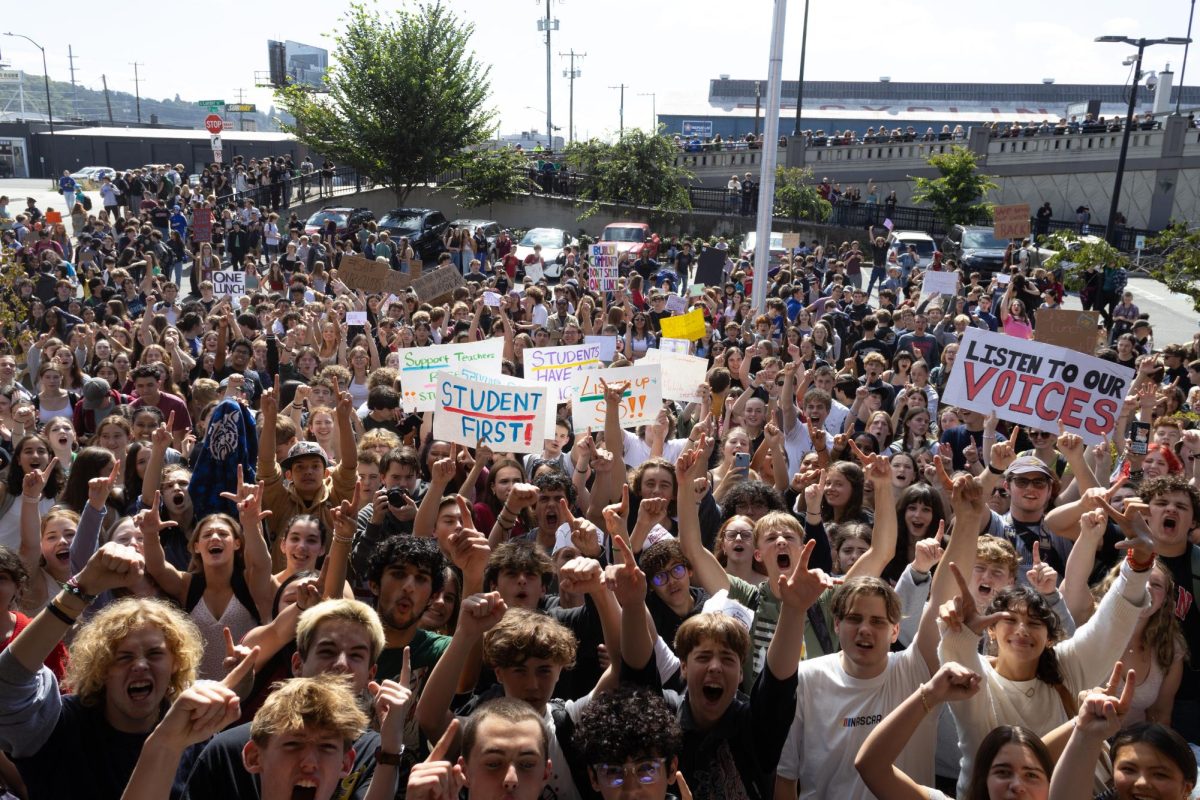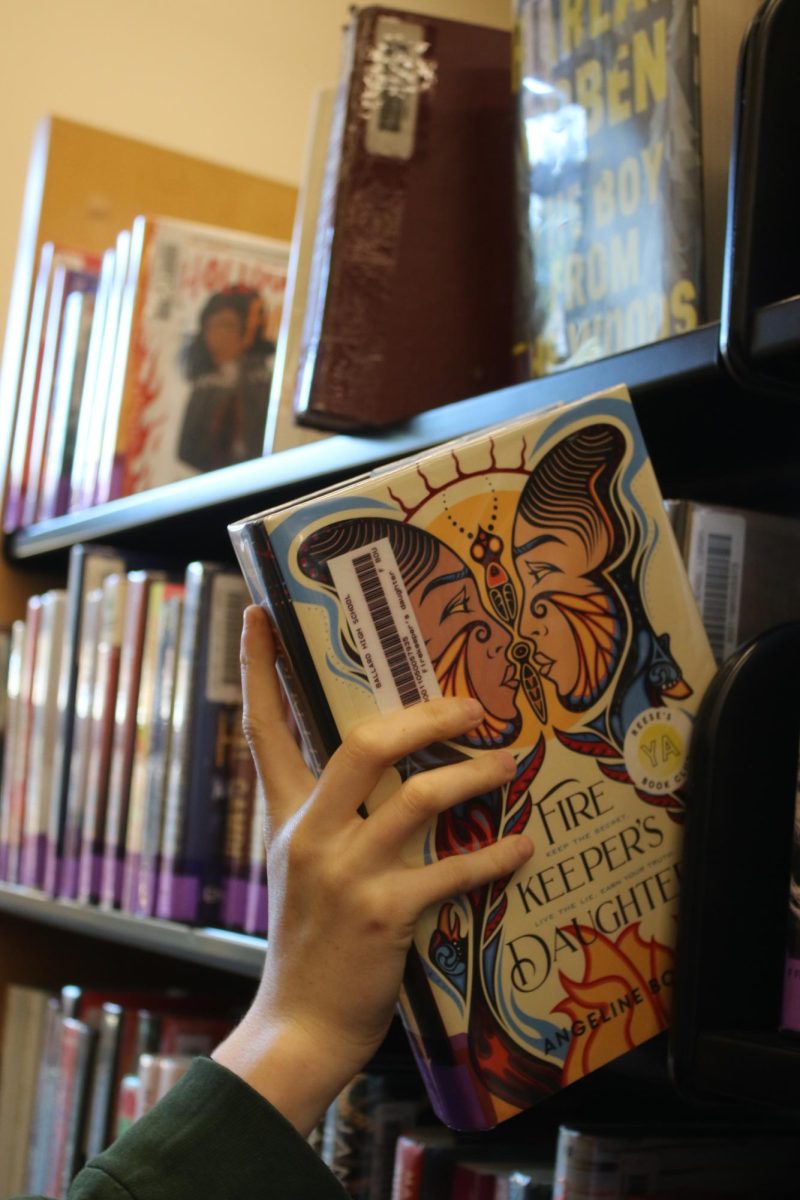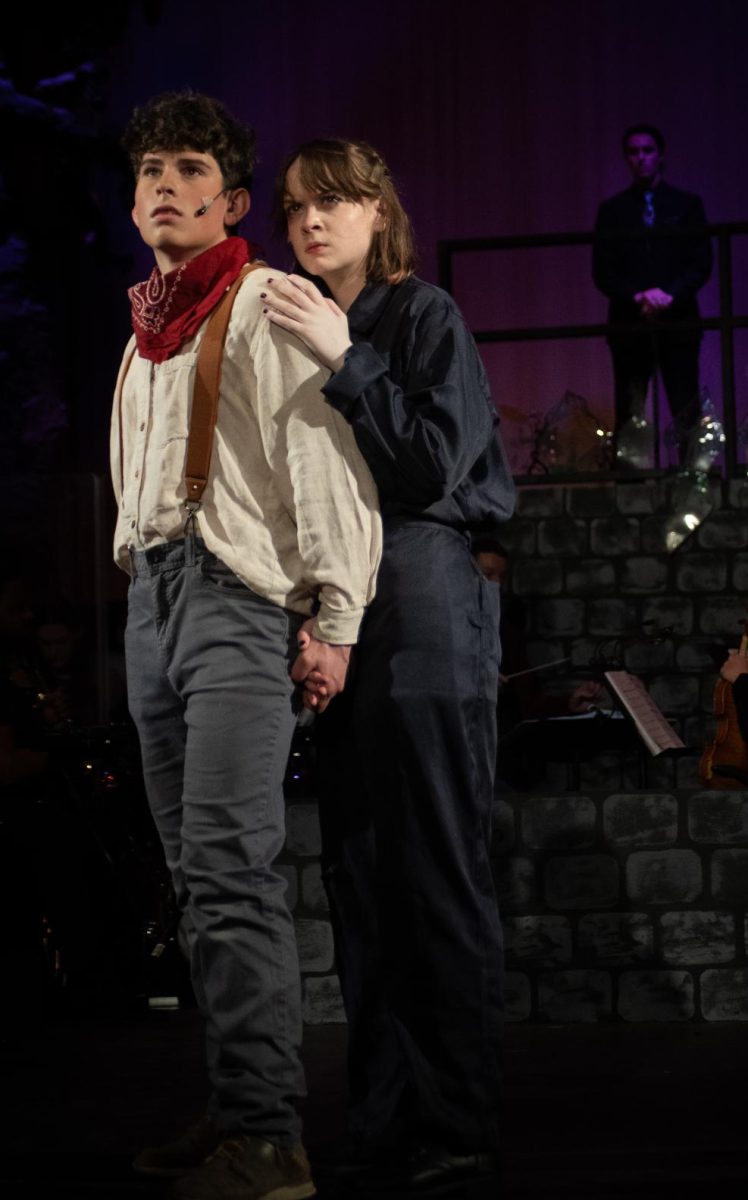While the recent increase of books being banned in libraries and classrooms has sparked various opinions across the country, students and staff at school are expressing concern about the book bans.
“We have more book bans than your parents and grandparents combined,” Librarian TuesD Chambers said. “So, we’re living in a country that instead of I don’t know, dealing with the climate crisis [and] making kids safe from guns, we’re spending time and vital resources banning books.”
Many of the books being banned across the country include LGBTQ characters or characters of color.
“They’re not banning books that have straight white Christian characters,” said junior Saffire Crane. “So, when you have queer kids, or kids who are not Christian, or kids with darker skin, and they’re not seeing themselves represented in the books that they’re reading, it would make it harder to grow up.”
Crane says the people responsible for banning books are taking knowledge away from students who need it.
“I feel like a parent has a right, for an under 18 kid, to say to them ‘I don’t want you reading this book’,” Crane said. “But I don’t think it’s fair for a small group of parents to say, ‘I don’t want any kid reading this book’.”
It really is a small group of parents making decisions, and banning books, for a much larger population.
“I’m also concerned because 11 people are responsible for over 90 percent of the challenges and bans in this country,” Chambers said. “So, if you’re ever questioning if one person can make a difference, yeah, yeah they are, and they’re making it really awful.”
Chambers says that books being explicitly banned isn’t the only thing worrying her.
“Librarians are feeling pressure, teachers too, that if they teach a certain thing, it might be too controversial, so they do what’s called quite censorship,” Chambers said. “So, they just won’t recommend the book, or they won’t have the book out on the shelves.”
Banning books is not something taking place in only rightwing states, or only Southern states
“Right over in Bremerton, across the water, we had a book ban,” Chambers said.
She also said that it is a matter of time before this issue starts having a stronger impact at school.
“A principal recently put out an edict, like an email blurb, at one of the middle schools in Seattle that said, ‘before you share about a book, be sure it doesn’t go against some people’s ideologies’,” Chambers said. “The way it reads is code for ‘don’t read books that have gay characters.’ and that’s not what that principal wrote, but if you read between the lines, it sure sounds like it.”
At school though, some language arts classes are specifically reading books that students wouldn’t have access to in other cities and states.
“All the kids in my classes get to select a book that’s off a banned book list, that’s at their reading level or higher,” language arts teacher Shaun Riley said.
Riley added that students oftentimes have to research where and why their choice book was banned.




















